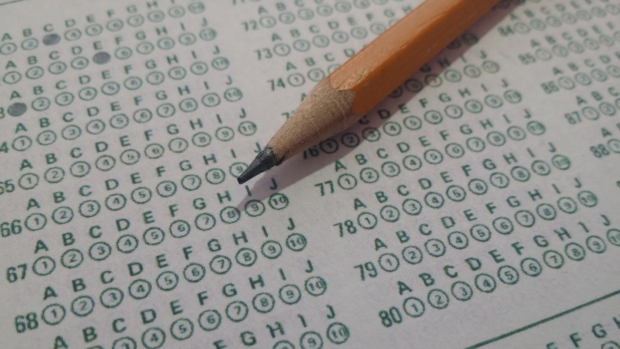MANILA, Philippines — The proposed bills in Congress intending to ban the “no permit, no exam” policy may force many private schools to close and thousands of teachers and staff to lose their jobs, according to a network of private school groups.
The Coordinating Council of Private Education Associations (Cocopea) on Tuesday reiterated its stand against the passage of Senate Bill No. 1359 and House Bill No. 7584, which seek to prohibit educational institutions from implementing a policy preventing students from taking tests while they still have unsettled financial obligations.
SB 1359 was approved on the third and final reading while HB 7584 passed the second reading last March 21.
Cocopea spokesperson and legal counsel Kristine Carmina Manaog said the bills would impose “prohibitive provisions” that could gravely affect the timely collection of tuition and other fees needed by private schools to support the teachers and staff still reeling from the impact of the COVID-19 pandemic.
“We urge lawmakers to defer the bicameral committee deliberations and hear the private educational sector’s voice,” she said.
While the group recognized the need to alleviate the financial burden on students and their families, Cocopea noted that the government should come up with a “balanced solution” that would address the concerns of both the students and private educational institutions.
Private schools, Cocopea said, rely on the timely payment of tuition and other school fees to sustain their operations and meet salary payments, utilities and other expenses.
If passed, the bills banning the “no permit, no exam” policy would remove the compulsion to timely pay tuition and other obligations, which would result in the disruption of the private school’s cash flow, it pointed out.
Financial risk
The group further argued that private schools could not defer their own obligations such as loan amortizations, payment of electricity, water and other utilities, nor suspend paying the salaries and benefits of teachers and other employees.
“Since private schools rely heavily on steady cash flow for their continued operations, any prohibition that affects their ability to effectively collect fees for funding will disrupt cash flow that is used to sustain their operations. Without this, many schools will be forced to close. And in turn, result [in] the disenfranchisement of thousands of students and cause extensive job losses,” Manaog warned.
Cocopea chair Bernard Villamor noted that private schools were extending compassion to students and parents through installment payments and flexible policies to accommodate students who could not pay due to emergencies or other reasons.
He cited DepEd Order No. 15, series of 2010, which stated that both public and private schools must allow students with unpaid fees to take their final exams and ensure that “civil liabilities of parents should not in any way jeopardize their children’s continued schooling.”
“Allowing students to take exams without settling dues could send the wrong signal about financial responsibility, disrupt cash flow and harm school operations,” Villamor said.
Cocopea said they were willing to have a dialogue with lawmakers to come up with solutions that would ensure the financial stability of private schools and the accessibility of education for students.
Other options
“We can explore options such as expanding scholarship programs, establishing financial aid and student loan facilities, and fostering partnerships with the private sector to create employment opportunities for working students,” Villamor said.
At the House of Representatives, Camarines Sur Rep. Gabriel Bordado Jr., in a committee hearing last January, noted the need to provide some provisions to protect vulnerable private schools that might be affected by the bill.
On Feb. 22, Sen. Francis Escudero, chair of the committee on higher, technical and vocational education, pushed for the banning of the “no permit no exam” policy, saying it was the “cruelest of fines.”
“By any moral yardstick, forcing a student to forfeit an exam is the cruelest of fines. It triggers a chain of events that is sometimes life-altering for the student, for the worse, not only of denied diplomas but also of dead dreams,” he said.
Private schools earlier said that they might scrap the installment payment option for their fees if the bill banning the “no permit, no exam” policy should become a law.
“It’s possible that we might review our payment schemes to ensure the timely payment of school fees. Parents might be forced to pay in full on the spot or upon enrollment,” Cocopea’s Manaog said in an interview on Teleradyo last month.
According to Manaog, the passage of the bills in Congress caught them by surprise, claiming that there was not enough discussion on the matter.
